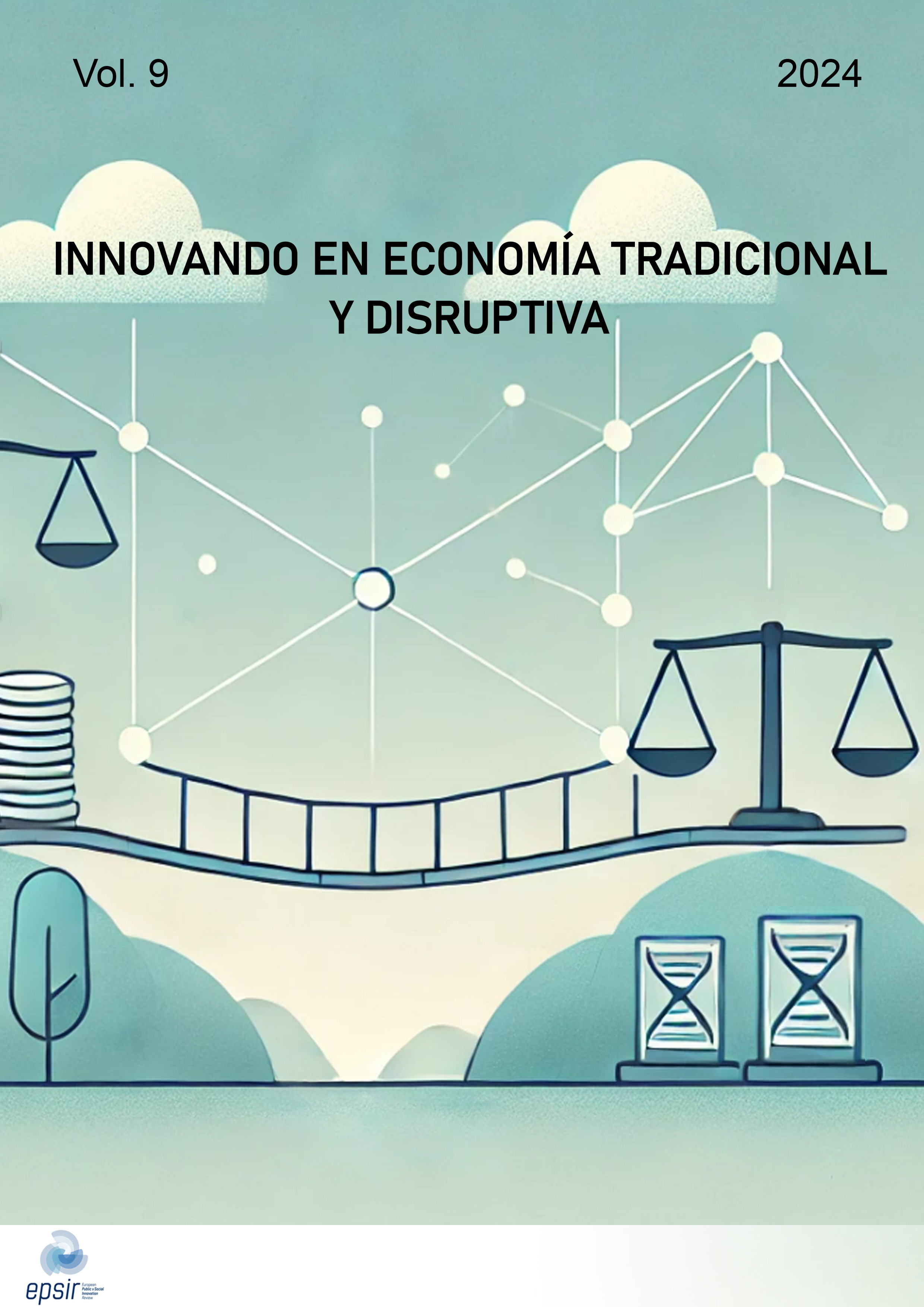Innovating in traditional and disruptive economics
DOI:
https://doi.org/10.31637/epsir-2024-1736Keywords:
Green Economy, Behavioral Economy, Circular Economy, Digital Transformation, Economic SustainabilityAbstract
This monograph examines how technological innovation and new business models are transforming the economy in both traditional and disruptive sectors. It focuses on several key areas, such as the green economy and sustainable taxation, exploring the impact of environmental policies on tax systems. He also addresses behavioral economics, especially in developing countries, and how techniques such as nudge can promote economic growth. Other topics include the circular economy in industrial sectors, the digitization of finance, and tax challenges arising from emerging technologies such as blockchain and NFTs. Regional development, economic sustainability, financial literacy and equity in access to employment are discussed. Finally, the integration of sustainability in sectors such as agriculture, tourism and cultural industries is discussed, with a focus on circular business models and natural capital management.
Downloads
References
Adebiyi, O. O. (2023). Taxation in the Digital Age: An Examination of the Necessity, Feasibility, and Implications of Taxing Virtual Infrastructures. Asian Journal of Economics, Business and Accounting, 23(23), 13–35. https://doi.org/10.9734/ajeba/2023/v23i231168 DOI: https://doi.org/10.9734/ajeba/2023/v23i231168
Cid Moreno, D., Moreno-Adalid, A., Rodríguez-Iglesias, I., & Pinto Hernández, F. (2024). Economía conductual y su impacto en el desarrollo económico de los países menos desarrollados: Estrategias basadas en nudges. European Public & Social Innovation Review, 9, 1–20. https://doi.org/10.31637/epsir-2024-1028 DOI: https://doi.org/10.31637/epsir-2024-1028
Delfa Rodríguez, B., Ballesteros García, C., & Gómez, G. M. (2023). Las Organizaciones No Gubernamentales de cooperación internacional en España y su rol en proyectos de innovación frugal. European Public & Social Innovation Review, 8(1), 95-112. https://pub.sinnergiak.org/esir/article/view/194 DOI: https://doi.org/10.31637/epsir-2023-194
González, A. E. V. (2024). Escalabilidad de los negocios digitales en el contexto de la nueva economía en Latinoamérica. Revista FACES, 6(2), 439-460. https://shorturl.at/NT99O
Molina, P. M. H. (2023). Incidencia de la regulación europea y autonómica sobre una reforma ambiental de las haciendas locales. Aranzadi.

Downloads
Published
How to Cite
Issue
Section
License
Copyright (c) 2024 Beatriz Esteban Ramiro, Javier Abuín-Penas, Nuria Rodríguez López

This work is licensed under a Creative Commons Attribution-NonCommercial-NoDerivatives 4.0 International License.
Authors who publish with this journal agree to the following terms:- Authors retain copyright and grant the journal right of first publication with the work simultaneously licensed under Creative Commons Non Commercial, No Derivatives Attribution 4.0. International (CC BY-NC-ND 4.0.), that allows others to share the work with an acknowledgement of the work's authorship and initial publication in this journal.
- Authors are able to enter into separate, additional contractual arrangements for the non-exclusive distribution of the journal's published version of the work (e.g., post it to an institutional repository or publish it in a book), with an acknowledgement of its initial publication in this journal.
- Authors are permitted and encouraged to post their work online (e.g., in institutional repositories or on their website) prior to and during the submission process, as it can lead to productive exchanges, as well as earlier and greater citation of published work (See The Effect of Open Access).


